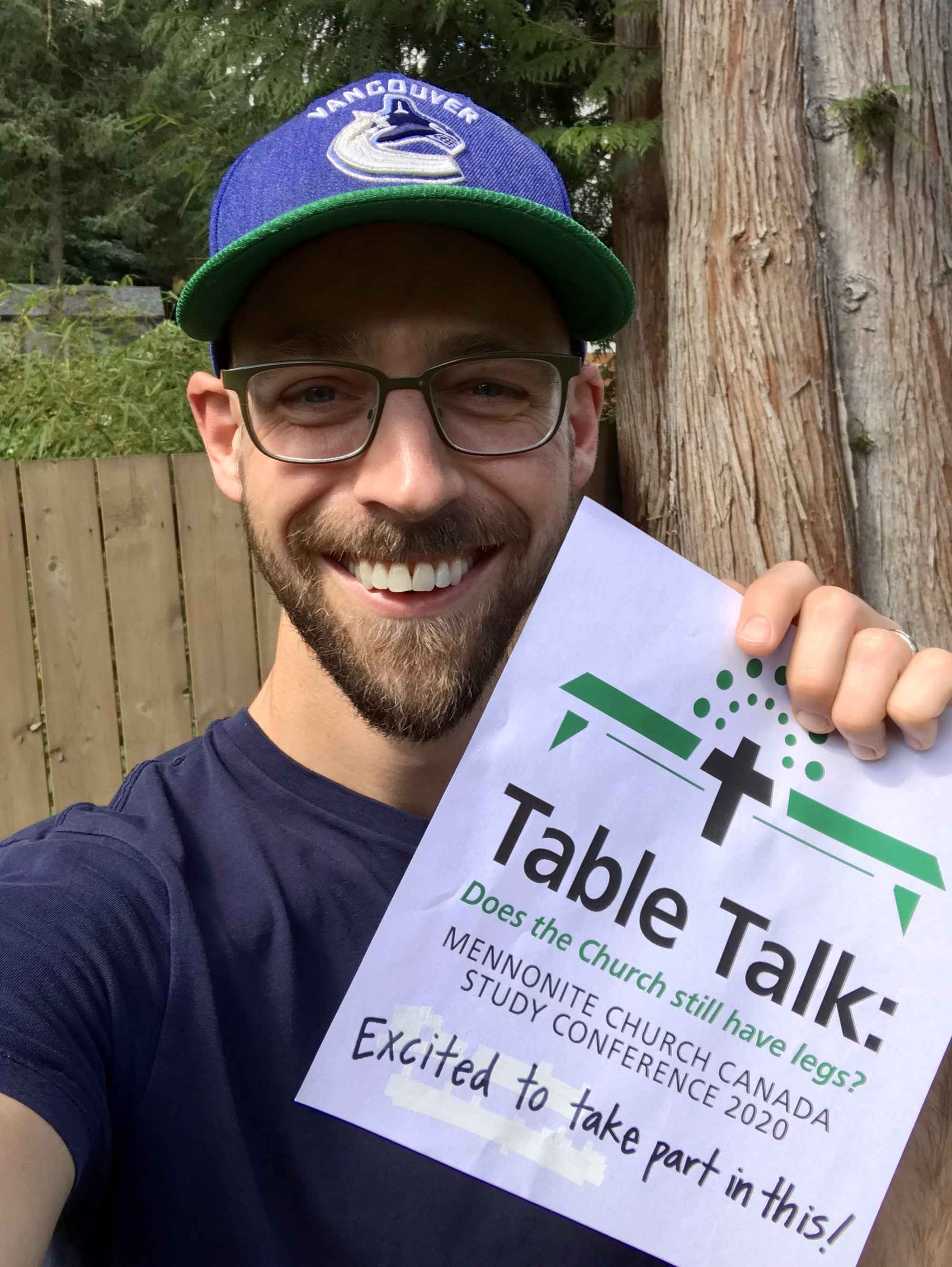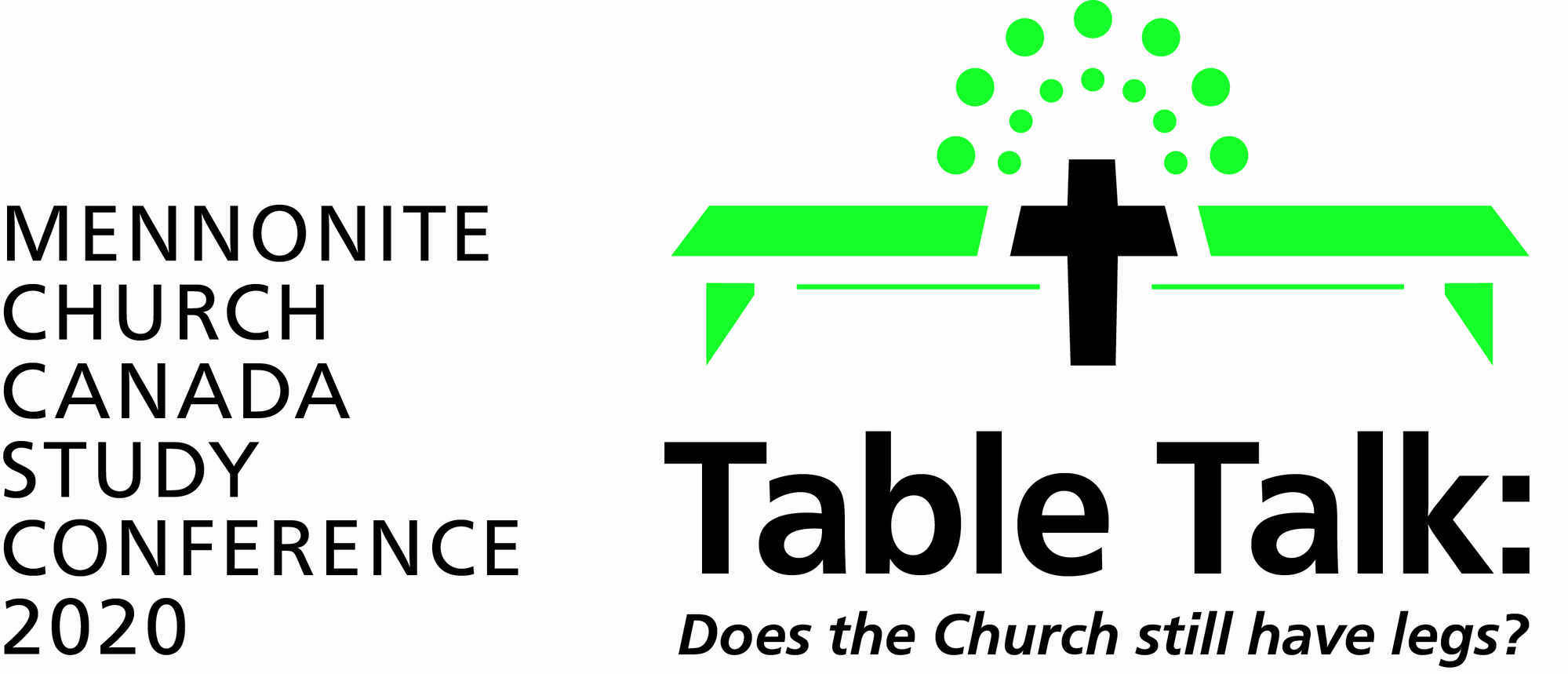September 11th, 2020Meet our Table Talk guest speakers: Jesse Nickel
Get to know the folks who will be leading discussion at our study conference in October


Jesse Nickel, professor of Biblical Studies at Columbia Bible College in Abbotsford, B.C., is a guest speaker at Mennonite Church Canada's study conference Table Talk 2020: "Does the Church still have legs?" on October 24. He will present on worship in the New Testament.
Briefly describe your academic journey and interests.
I first became interested in academic biblical study when I read N.T. Wright’s The New Testament and the People of God, while serving as the youth pastor at Peace Mennonite Church. After an undergrad at UBC and graduate work at Regent College where I studied biblical exegesis, I felt God’s call to further study. I completed my PhD at the University of St Andrews in Scotland, under the supervision of N. T. Wright himself. I became a member of the biblical studies faculty at Columbia Bible College in 2016. My academic interests are the historical Jesus and the Synoptic Gospels.
The New Testament doesn’t give us a great degree of detail on the “normal” liturgy followed by, for example, a house church in first-century Corinth. To me, this ought both to challenge and encourage us.
What is most compelling to you about how your work intersects with the life of the church at this moment in time?
My research interests have been driven by my fascination with Jesus: by the desire to understand more fully how the story of God and God’s people reached its fulfillment in his life, death, and resurrection; and what Jesus’ first followers understood about who Jesus was, and what this meant for themselves, as his people, living within this story that had reached its fulfillment but was somehow still ongoing. I believe that those questions remain today, and that there is much to be learned from close attention to the ways that the first followers of Jesus answered them, as well as the ways these answers informed their life together as a community of kingdom-people.
In your specific topic for this conference, (OT, NT, worship, mission, etc.), what is the most challenging truth or theme for churches to wrestle with? What is the most hopeful or encouraging?
I think that many of us have a basic set of expectations for what it means to be a church. We all have frameworks informed by our cultural context and experiences. But I think we often fail to consider that many of our expectations and practices lack explicit connections to those of the first followers of Jesus. The New Testament doesn’t give us a great degree of detail on the “normal” liturgy followed by, for example, a house church in first-century Corinth. To me, this ought both to challenge and encourage us. It’s a challenge because it opens up the possibility to question the basis of many components of church that we take for granted. It’s also an encouragement because of the freedom it gives us, and because, when we look carefully at what the NT does tell us about the identity and practice of the first Christians, we find at the very centre the life and teaching of Jesus—and Jesus has not, and will not ever, change.
Do you think the church still has legs?
I think the answer to this question depends on how you define “church.” If by church you refer to a weekly gathering of a specific group of people in one specific building to do a specific set of activities together, well, then, due to COVID-19, that phenomenon will, in all likelihood, looks different now than it did. If by “church” you refer to the ekklēsia, the “assembly” of God’s people, then I think the story of the Bible suggests that our answer cannot be anything less than an emphatic “Yes!” God’s work of building a kingdom of shalom, of making all things new, is and has always been in partnership with—we might even say through—God’s image-bearers, human beings who, by the life-giving power of the Spirit and trusting in the faithfulness and love of God, participate in that work. God has promised; God is faithful.